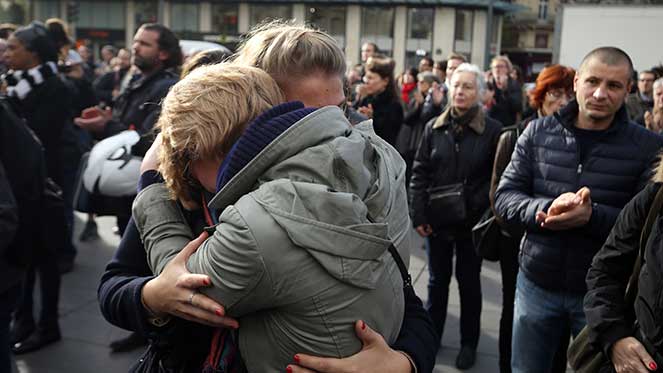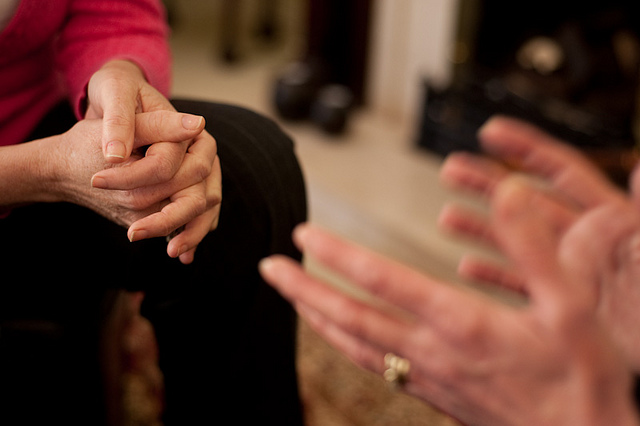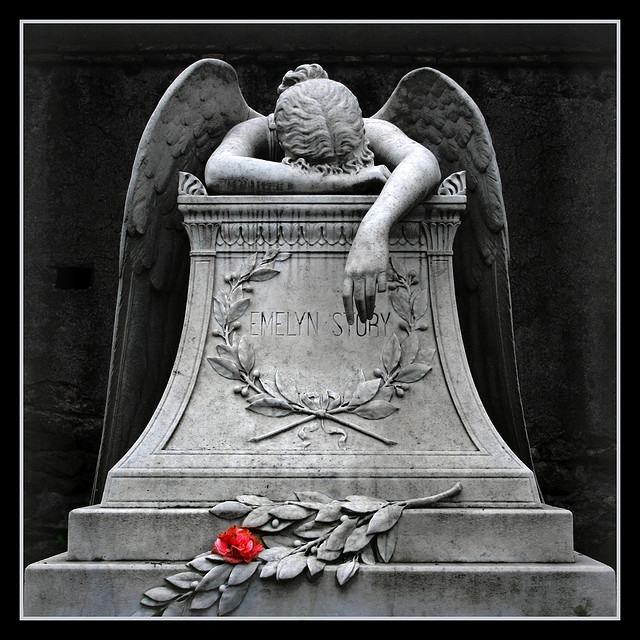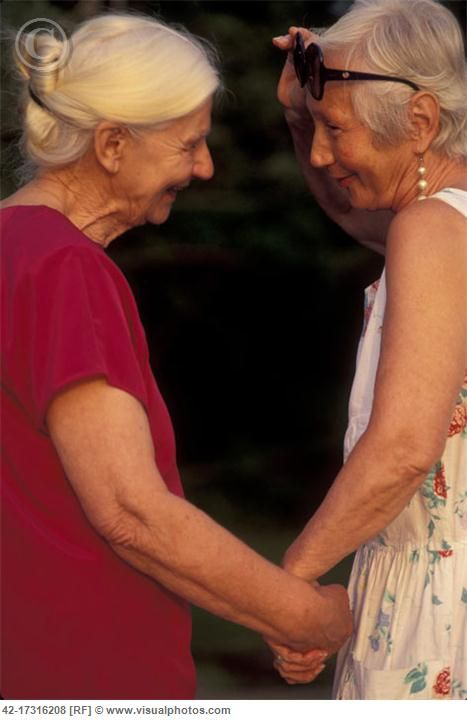For me, the absolute worst aspect of aging is the accumulated losses. Death becomes all too frequent a visitor.
Dear friends stricken with cancer or suffering tragic deaths leave me in far greater numbers than when I was younger. And now, there’s the global loss of hundreds of lives in Paris, adding to my almost daily grief for the mounting deaths of innocent Palestinians. Not to mention the escalating losses in Syria, Beirut and Afghanistan and the thousands of refugees swelling Europe’s borders.
When losses are this encompassing the temptation is to numb myself, but I know better. I know from experience if I don’t face my losses, they’ll turn on me, producing insomnia, or a flattened spirit.
When my ex-husband (with whom I was on good terms) fell in the ice and drowned almost two years ago now, I was too shocked to know how to move forward. A grief counselor proved invaluable, offering me a safe place to be vulnerable and release my emotions without worrying about how I sounded. For several sessions I sobbed more than I spoke.
The grief counselor gave me permission to take as long as I needed to heal: a message at odds with our culture, which expects mourning to be over in a flash.
Eventually I did heal, but I still mourn Marvin’s death as I do that of other close friends: Zoe, Diana and Ray, who all died within a few months of one another in 2011.
I’m indebted to Anne Lamott (author of Stitches: A Handbook on Meaning, Hope and Repair) for validating my ever-present, but less- pronounced, state of grief:
You will lose someone you can’t live without, and your heart will be badly broken, and the bad news is that you never completely get over the loss of your beloved. But this is also the good news. They live forever in your broken heart that doesn’t seal back up. And you come through. It’s like having a broken leg that never heals perfectly—that still hurts when the weather gets cold, but you learn to dance with the limp.
Grief counselor, Francis Weller, in an interview in The Sun, from October, 2015, believes that we need to resurrect the ancient tradition of grieving communally, where we hold one another’s grief, support one another and engage in mutual sharings around loss.
Weller emphasizes: If you stay silent about your suffering, then your friends stay spiritually unemployed.
When I was grieving for Marvin, friends would check in to see how I was managing. I think they were hoping I would answer, “I’m fine,” but often, I told them how much I still hurt. By and large they were there for me, listening and empathizing. As a result our bonds strengthened.
Paris is grieving as one nation. I only hope they will continue to open their hearts not just to their losses, but also to a conciliatory future with the Muslims in their country. If we can grieve communally, keeping our hearts soft and our souls engaged, while protesting the knee-jerk governmental response to bomb “the enemy,” grief can be our teacher. It can lead the way to a better, more humane future.



